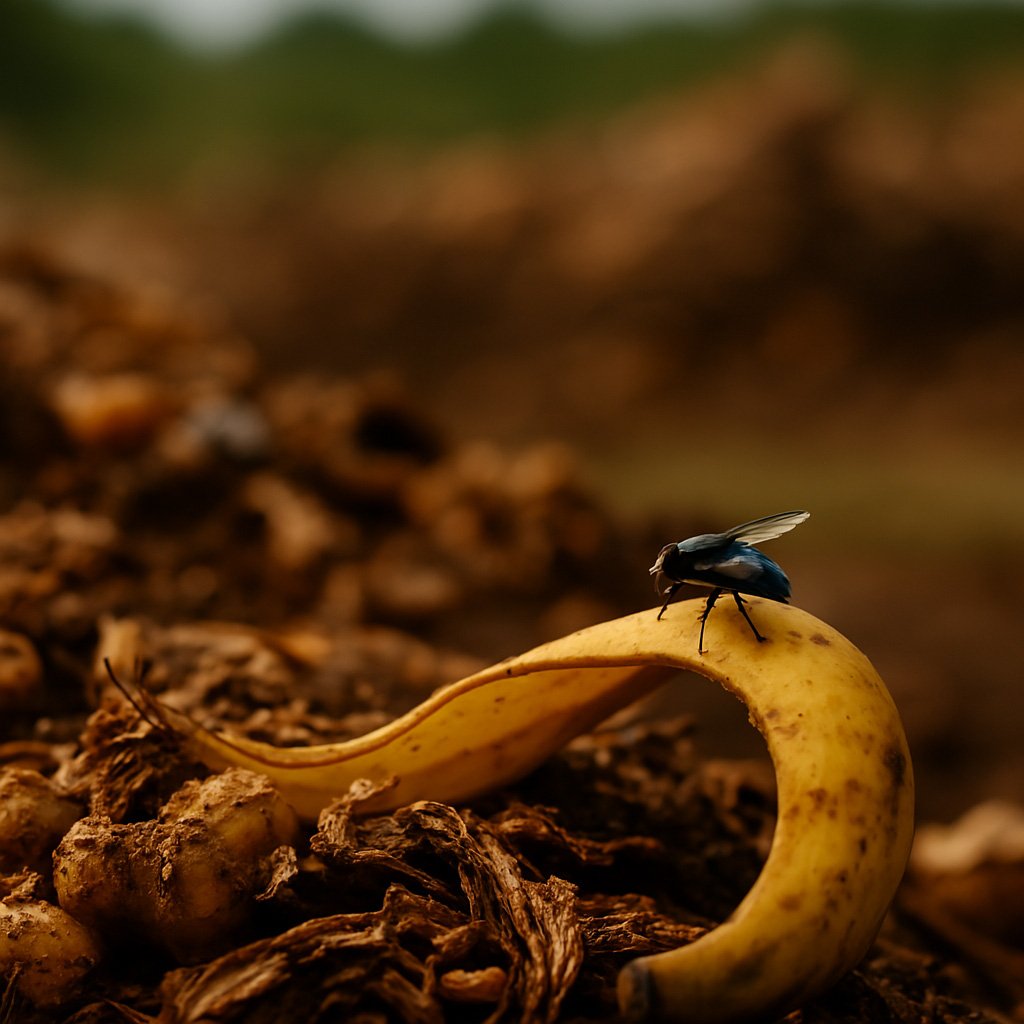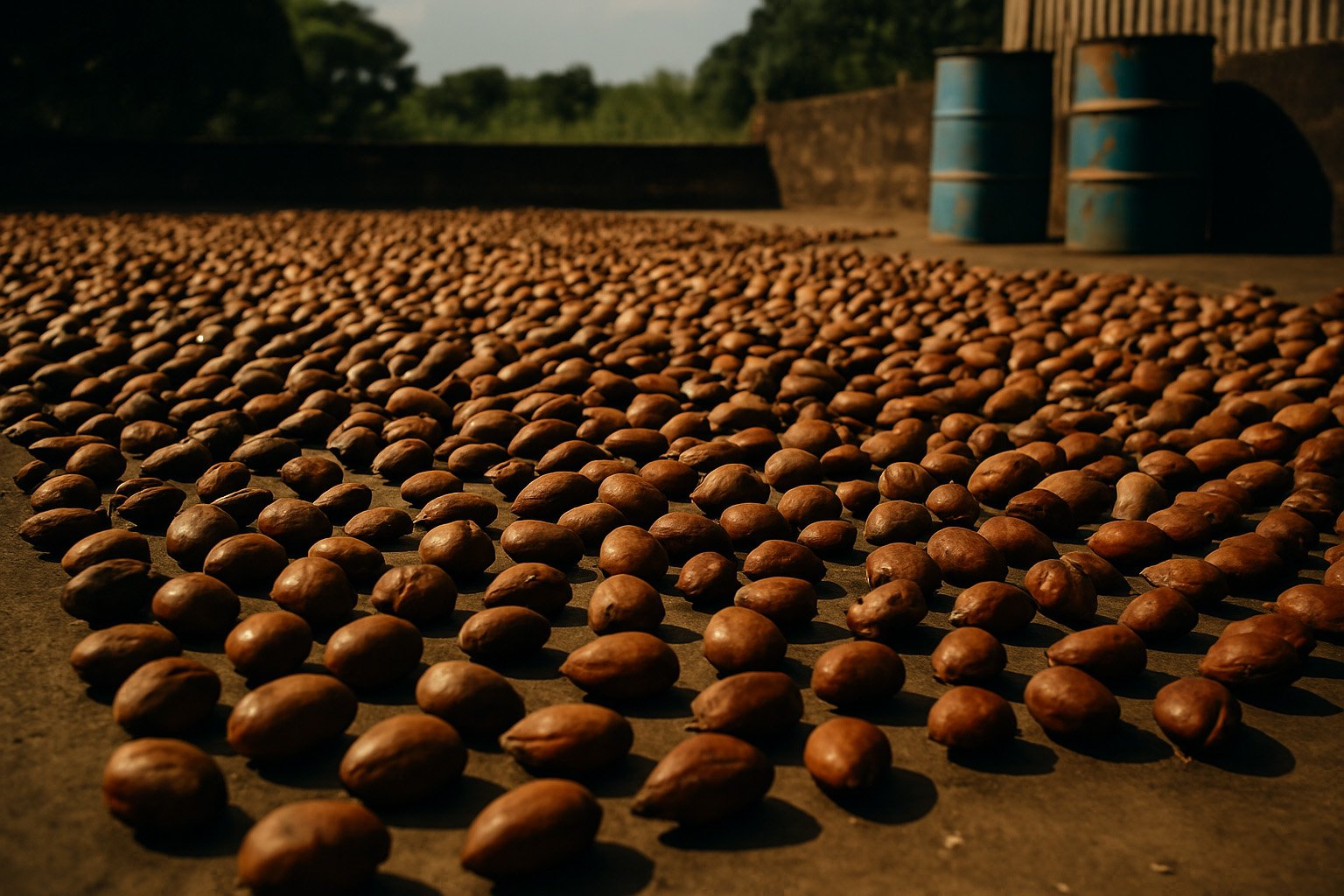





Waste is Magic.
We Make It Work.
Every day, thousands of tons of organic waste go unmanaged across Africa—polluting cities, contributing to emissions, and wasting potential. We transform that waste into high-value products: compost, alternative fuels, and low-carbon materials for the industries of tomorrow.
The Problem: Waste Is Wasted.
We collect it
Africa produces over 125 million tons of organic waste per year. Most ends up in landfills, creating methane emissions and missing a massive, untapped resource.
We transform it
Using innovative processing methods, we convert organic waste into valuable products that serve multiple industries and environmental needs.
We create impact
Our circular approach diverts waste from landfills, reduces emissions, creates jobs, and provides sustainable solutions for businesses and communities.
Measurable Impact,
Real Results
45k
Tons Diverted
Organic waste successfully diverted from landfills and transformed into valuable products
67%
Emission Reduction
Decrease in methane emissions compared to traditional landfill disposal methods
120
Jobs Created
Local employment opportunities generated through our operations across Tanzania
350
Farms Supported
Agricultural operations now using BioBuu compost to improve soil health and crop yields
Join the Future of Waste-to-Value
Municipalities
Partner with us to implement sustainable waste management solutions that reduce environmental impact while creating economic value.
Businesses
Transform your waste stream into a value stream. Enhance your ESG profile while converting operational waste into resources.
Investors
Support a high-growth, high-impact venture at the intersection of sustainability and profitability in an emerging market.
BioBuu collaborates with municipalities, forward-thinking businesses, and investors to scale sustainable waste solutions across Africa and beyond.

Why Invest in BioBuu?
Africa's organic waste challenge represents a substantial opportunity for growth-minded investors. Our model combines waste collection fees, product sales (compost and alternative fuels), and carbon credit generation to create multiple, stable revenue channels.
Meet the Team Turning Waste into Value
Visionary Leadership
Founded by Kigen and Matthew, who started BioBuu with a bold idea: what if waste wasn't wasted? Our leadership brings expertise from sustainability, business, and technology sectors.
Passionate Experts
Our team combines technical knowledge with deep understanding of local contexts. We're engineers, scientists, and business strategists united by our commitment to sustainable solutions.
Growing Team
Join us in building Africa's leading waste-to-value enterprise. We're always looking for talented individuals passionate about sustainability and innovation.
Reach Out to BioBuu
Our headquarters in Tanzania serves as the hub for our operations across East Africa, with plans for expansion to new markets in the coming years.
Get in Touch
Whether you're an investor, a municipality, or an eco-conscious business, we'd love to hear from you. Contact us to explore how BioBuu can provide waste management solutions tailored to your needs.
Complete our simple contact form or reach us directly at info@biobuu.com to start the conversation about transforming waste into value.
Our Products
We transform waste into everyday solutions—for farmers, families, and the future.
Our products are circular by design, local by nature, and better for animals, soil, and the planet. Here’s a snapshot of our range.
Kuku Bonge
Insect Protein for Poultry
Kuku Bonge is protein-packed poultry feed made from dried Black Soldier Fly larvae—clean, nutrient-dense, and naturally high in fat.
With 48.9% protein and 26% fat, it’s the perfect alternative to soy or fishmeal—ideal for chickens and farmed fish.
No fluff, no filler—just sustainable insect protein designed for optimal growth and better feed conversion.
BioBuu Organic Fertilizer
From Waste to Growth
Our fertilizer is made from insect-processed organic waste—rich in nitrogen, phosphorus, and potassium. It’s natural, balanced, and effective.
Whether you’re growing tomatoes or tending to maize fields, BioBuu Fertilizer boosts soil health and crop yields, the regenerative way.
Better for your farm. Kinder to your land. That’s the BioBuu promise.
Kibo
Insect-Powered Dog Food
Kibo is next-generation dog food made from nutrient-rich insect protein—delicious, digestible, and planet-friendly.
Why settle? Packed with clean protein, vitamins, and minerals, Kibo keeps dogs healthy and strong—with a lighter environmental footprint.
Vet-approved, nutritionally complete, and proudly East African—Kibo proves better nutrition can be better for the planet too.

We've Got Answers
-
BioBuu primarily processes organic waste, including food waste, agricultural residues, and selected biodegradable materials. We specialize in high-volume organic waste streams that can be transformed into compost and alternative fuels.
-
By diverting organic waste from landfills, we prevent methane emissions. These reductions are verified and converted into carbon credits, which companies can purchase to offset their own emissions as part of their sustainability commitments.
-
BioBuu operates primarily in Tanzania today, with plans to expand across East Africa in the near future. Our model is designed to be scalable to other regions with similar waste management challenges.
-
Our compost is produced through a carefully controlled process that ensures high nutrient content and soil health benefits. We regularly test our products to maintain quality standards that exceed typical market offerings.
Our Valued Partners
BioBuu collaborates with forward-thinking organizations across industries. Together, we're building a sustainable waste management ecosystem throughout East Africa.
Partnership opportunities are available for organizations committed to sustainable development and circular economy principles in Africa.


















